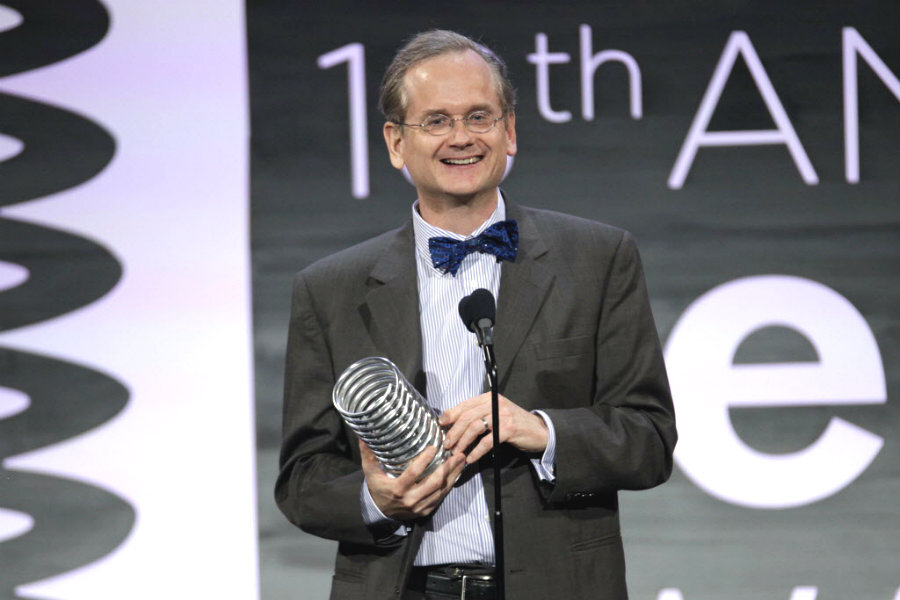Who is Lawrence Lessig, and why is he running for president?
Come Labor Day, a Harvard law professor may be running for president.
Lawrence Lessig announced on Tuesday he is exploring a bid for the White House that would rely on funds crowdsourced from the Internet and would focus on a single agenda: “unrigging the political system.” Part political experiment, part advocacy, the campaign seeks to highlight corruption in the democratic process – and to send Professor Lessig into the nation’s highest office to fix it.
"Most Americans think the way we fund campaigns for America is crazy corrupt," according to Lessig’s launch video. "A representative democracy is supposed to represent us … but sometimes it gets stuck and can’t hear us."
Lessig's solution? "They need an intervention. And that’s why we’re going to have to hack the system: To intervene."
Lessig’s only agenda as president would be to get Congress to pass the Citizen Equality Act of 2017, a bill to increase voter rights, introduce new methods for electing representatives, and push for greater citizen funding.
If he raises at least $1 million by Sept. 7, Lessig says he will resign from his post at Harvard and start campaigning for the Democratic nomination. He would, however, only be a “referendum president,” vowing to resign from office and turn the presidency over to the elected vice president once the agenda is passed. By electing a one-issue president, he argues, the American people would send an unmistakable mandate to Congress.
Lessig’s announcement comes in the wake of a New York Times report revealing that fewer than 400 families were behind almost half the money raised to support presidential candidates for the 2016 election, “a concentration of political donors that is unprecedented in the modern era.” In addition, a large chunk of the $388 million that has been raised over the past year is pouring into super PACs – external groups that have no limit on the amount of anonymous contributions they can accept from individual donors.
“Acting as shadow campaigns, the political committees backing the major presidential candidates supported them with tens of millions of dollars in chartered planes, luxury hotel suites, opposition research, high-priced lawyers and more,” Eric Lichtblau wrote for the Times.
And while the public is dissatisfied with the way campaigns are financed – 85 percent of Americans said the system either needed “fundamental changes” or had to be completely rebuilt, a May New York Times/CBS poll found – they also see little hope for change in the near future.
To Lessig – who according to Politico spent years at the hub of technology policy debates before recently turning his attention to campaign finance reform – surrender is not an option.
“The core problem in America’s democracy is a problem of equality,” he said in a video explaining his reform proposal. “And as president ... I would serve until Congress passed a statute to fix this rigged system and end this inequality.”
This is not Lessig’s first attempt at enacting reform. In 2014, he co-founded Mayday, an independent political action committee that backed candidates who supported campaign finance reform laws. “But despite spending more than $10 million in 2014, the super PAC had a spotty record of success, seeing victory in just two of the eight races it targeted,” Politico noted.
Whether or not this new effort will fare better for Lessig remains to be seen. As of noon on Aug. 11, he had raised $32,699 from 332 donors.
He knows campaign reform is an uphill battle, but that's why a one-issue "referendum president" is needed, Lessig argues. "It may well be the only way we've got, short of storming Capitol Hill with muskets, to build the political power necessary to take on this Death Star they call D.C.," he said.






